3 Methods For Removing Rust
Rollie Johnson demonstrates how to remove rust from your tools and keep it at bay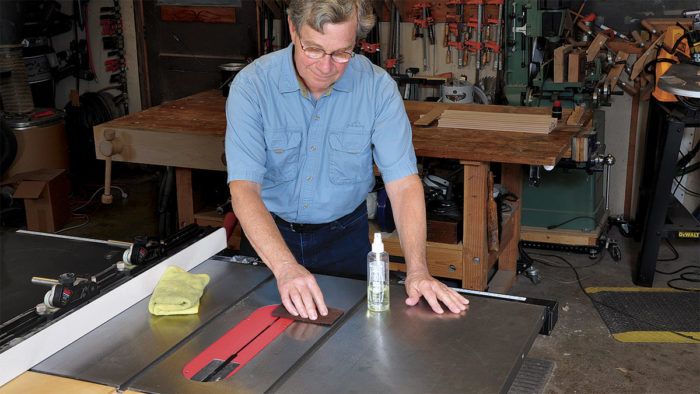
Synopsis: Even if you live in a dry climate, rust on tools and machinery can be a problem. And if you live in a place where the seasons bring rain, snow, or humidity, it’s worse. Although there is no bulletproof solution, Roland Johnson relies on three products to keep the red scourge at bay. Follow his steps for cleaning, rust-removal, and prevention, and you’re on your way to rust-free tools.
Rust, another name for iron oxide, occurs when iron, or a metal alloyed with iron, is exposed to water. The problem is pervasive in wet climates, but even dry climates devoid of big temperature and humidity variations can still see problems with rust. It’s inevitable. What’s more, short of plating or painting the iron, there’s no bulletproof or permanent solution. So what can we do to get rid of the red scourge? I have a trio of products that I rely on. For these to be effective, you’ll need to follow a few simple steps before, during, and after you use them. And once the rust is gone, I have some suggestions for prevention.
First remove the grime
For any rust remover to be effective, it has to reach below the existing surface rust and neutralize or eliminate freshly forming rust. If the tool is dirty, start by cleaning the surface with a solvent such as naphtha. Wearing gloves, apply the solvent and scrub any contamination and loose rust off the iron. I use a maroon Scotch-Brite abrasive pad where possible and a wire brush or stiff nylon brush for hard-to-reach places. Small parts I simply drop into a container of solvent for a couple minutes and then scrub clean with a small wire brush.
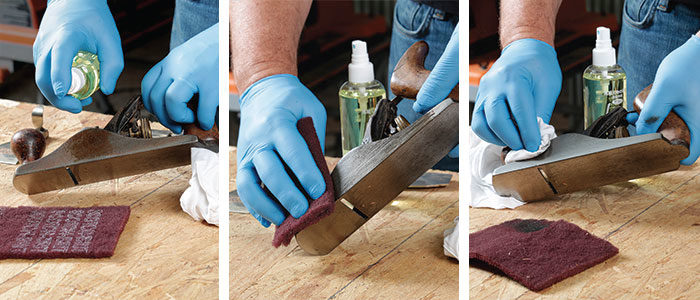
Attack the rust
With the grime gone, the rust is exposed and ready to be removed. While there are plenty of products and methods available, I have three favorites— camellia oil; Evapo-Rust, a proprietary rust remover; and phosphoric acid, found in cola—that I choose from depending on the task. I’ll discuss some other products and methods, too, and explain why they fall short in my book.
From Fine Woodworking #272
For the full article, download the PDF below:
More on FineWoodworking.com:
Fine Woodworking Recommended Products
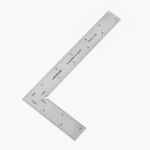
Veritas Precision Square
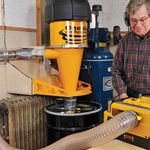

Rikon 10-3061 10-in. Deluxe Bandsaw
The saw has two speeds: 3,280 sfpm (surface feet per minute) for wood and 1,515 sfpm for soft metals and some plastics.




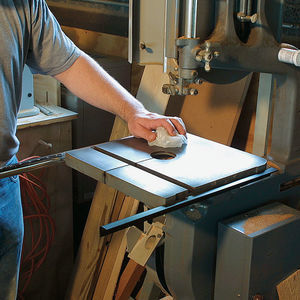

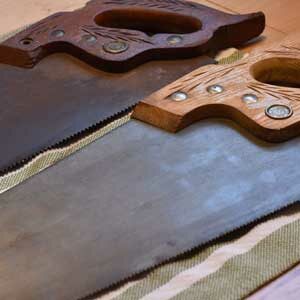





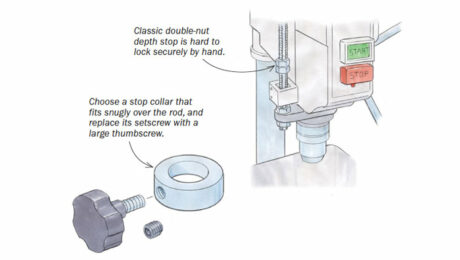
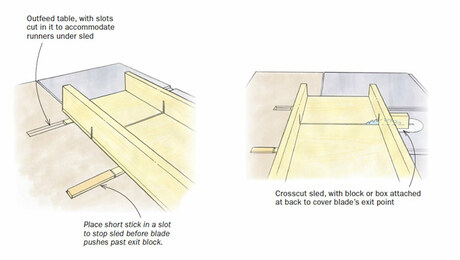
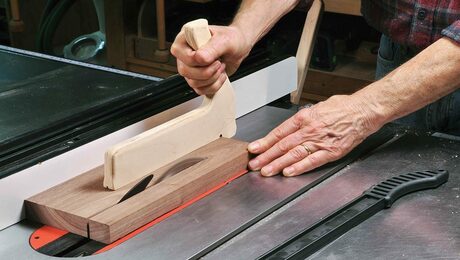








Comments
Thanks for the article. Just to correct you, though...rust is caused by a reaction between iron and oxygen, not water. Water tends to speed up the reaction, but it's actually an oxidation reaction that creates a new compound, that nasty iron oxide. Coating iron or steel completely (an air tight seal) prevents oxygen from coming in contact with the metal, and hence, no rust. That's tough to do, but oils or coatings such as paint are used for that purpose.
I'm afraid I found another scientific error in this article. Warm air holds more moisture than cold because the molecules in warm air are more spread apart, not because the individual molecules expand. So, when these molecules come in contact with a metal surface (which is typically colder than the surrounding air), the air contracts and the molecules move closer together. This causes any water molecules in the air to condense onto the metal surfaces, thus speeding up the oxidation reaction. Again, the reaction actually involves the oxygen in the air, not the water. The moisture tends to speed up the oxidation that would naturally occur anyway. Keeping the iron/steel surface covered is helpful, but you really have to avoid trapping moist air underneath any protective layer.
I'm with the Author on this one.
From a chemical perspective, water is required for rust to occur and rusting does not occur in dry air. The redox reaction requires the water in order to complete, and the iron oxide created is not anhydrous.
From a pragmatic, workshop perspective, the big cause of rust on tools is warm air hitting cold tools causing condensation. A warm wind carrying moisture will leave a layer of water on surfaces which take a while to warm up, just like cast iron.
An excellent discussion of the rusting reaction can be found at https://chemistry.stackexchange.com/questions/22043/does-concentration-of-salt-increase-or-decrease-rate-of-rusting
Log in or create an account to post a comment.
Sign up Log in